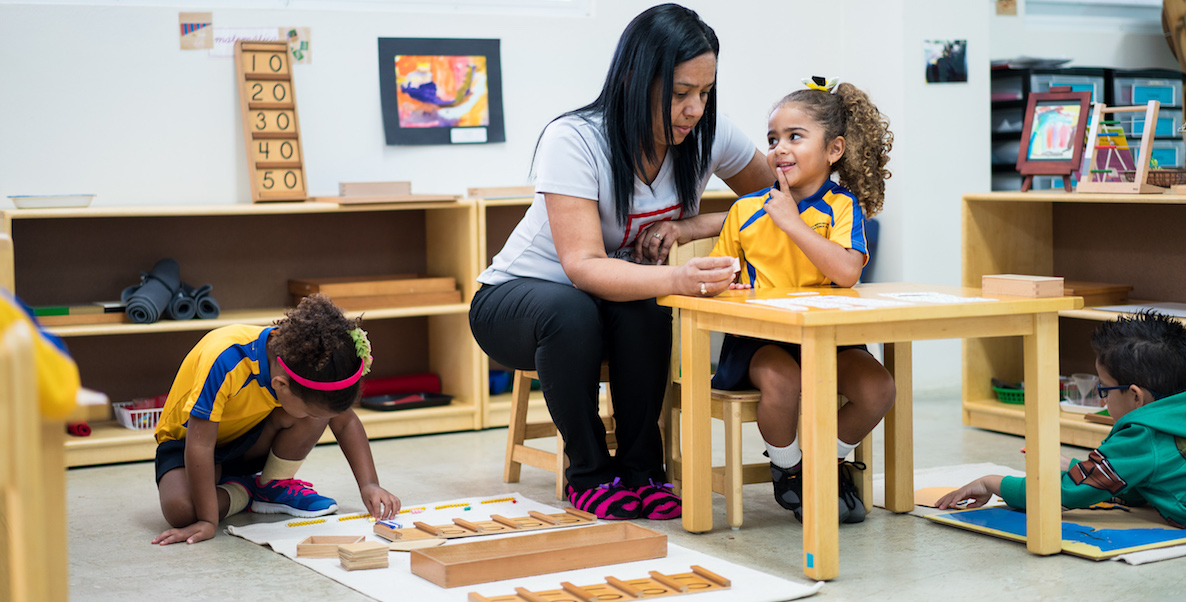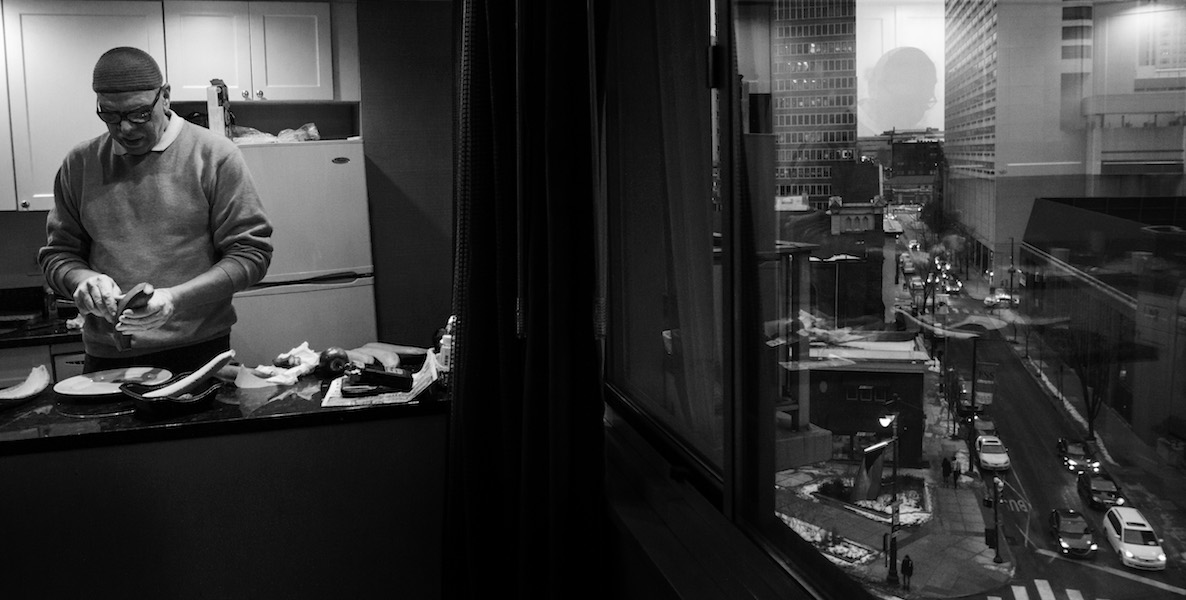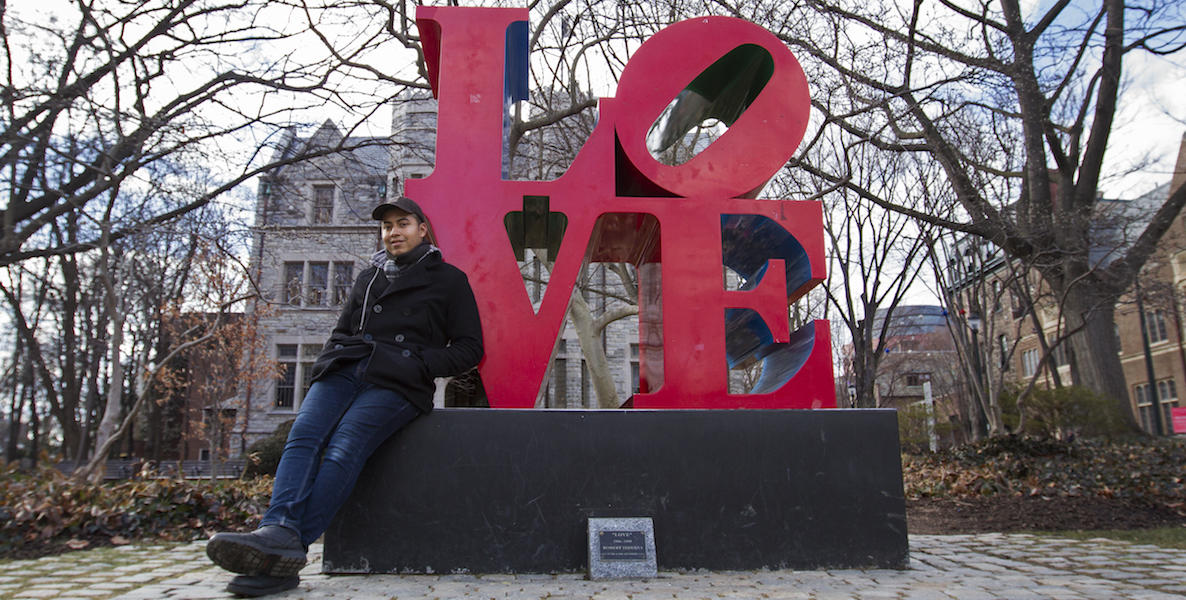Raúl Berríos felt lucky. Like many other Puerto Ricans, the 63-year-old musician and teacher knew that the “big” storm of the season—Irma—had already passed. Mammoth Maria had popped up with a straight-shooting trajectory and catastrophic predictions; but Puerto Rico had not suffered a major hurricane for 80 years. Most importantly, it had survived one cataclysmic near hit after the other since the 1920s. It was a meteorologically-blessed antille. He was sure this would be the same.
And then, Raúl began to see omens. The parrots that routinely squawked at sunset on the palm trees around his home were missing. The dark and quiet heaviness that arrives with incoming storms felt more asphyxiating than ever. Panic trickled into him; his home was not ready for what was coming. More importantly, he had to save his instruments.
So he sped to the nearby studio where his 9-year-old son, Asaf, was recording his first CD. He carefully carried the percussion instruments and placed them into the car trunk. Afterwards, at the local hardware store, he picked up two big screws to secure the large, glass pane doors that framed his backyard. Armed with cans of tuna and gallons of water, they were ready to receive the hurricane.
The gusts were coming from all directions at all times. As a musician, Raúl could pick out patterns and melodies in sound; but all he could hear outside was destruction.
As if beckoned by the nightfall, the rain began to hammer down on Raúl ‘s house. He prayed to the same God that had saved the island from other hurricanes to let Asaf sleep through Maria. The hurricane was 12 hours away from touching land, but the power had already gone out. When the winds came, Raúl did not know what was happening. The rapid flurries would pound on the roof “like a gigantic monkey ripping through the cement.” Then, they would quiet down and suddenly come knocking sharply on the windows, as if mocking their fragility. The gusts were coming from all directions at all times. As a musician, Raúl could pick out patterns and melodies in sound; but all he could hear outside was destruction.
![]() At around 3 a.m., Asaf’s mother called hysterically from Philadelphia. She could see the destruction through the television screen; the overflooded rivers, the inundated streets, the collapsing mountains, the mudslides that had taken the lives of three elderly women. What she could not do was pull Raúl and Asaf from Maria’s wrath.
At around 3 a.m., Asaf’s mother called hysterically from Philadelphia. She could see the destruction through the television screen; the overflooded rivers, the inundated streets, the collapsing mountains, the mudslides that had taken the lives of three elderly women. What she could not do was pull Raúl and Asaf from Maria’s wrath.
At first, the musician was befuddled; from his vantage point, all he could see was his yard and his neighbors’ homes. The devastation was simultaneously too invisible and too large to fathom. Halfway through the call, the signal was cut, to never come back until much later. Raúl spent the night praying for his son, his house, and his island.
Raúl and Asaf climbed to their roof as soon as it had passed. It was the difference “del cielo a la tierra;” between the sky and the earth. Asaf’s pomarosa tree, which he had cultivated with the detail and dedication only a child has, had fallen to the ground and splintered.
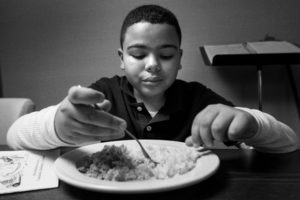
Asaf was accustomed to a rug of bright pink blooms under the pomarosa; in their place, the palm trees were piled up as if on purpose, like an offering from the storm. Their neighbor’s arecas had become makeshift missiles, and pummeled through fencing. Every possible surface was matted in plant matter and debris. The telephone wires were delicately laced around the roads of their neighborhood, now intransitable.
It was as if the hurricane had taken the time to make an impassable zigzag. In the distance, a new horizon had taken shape. The sand had built a new beach, now covering sidewalks and streets. The Expreso 66, a congested highway that had seemed far, was now perfectly in view. Mansions they did not know existed lined up next to one another only a few miles away. The massive patches of foliage that provided an underappreciated level of privacy were no longer there, or anywhere.
Raúl does not know if they will be going back to Puerto Rico any time soon. He feels stuck in a geographic and circumstantial limbo, somewhere between the Caribbean and the Mid-Atlantic. But he hopes they will be able to return soon. After all, and in his own words: “We were happy there.”
Raúl and Asaf spent the days after the hurricane playing red and green steel drums they had built out of recycled trash cans. Their entire repertoire—from Christmas songs to Puerto Rican bombas—was performed. With no electricity, no phone, and no communication, no one else existed. It was just Raúl, Asaf and their music. Their house, plastered with old instruments from wall to wall, was an island in an island that had barely survived a storm. But slowly, their food supply dwindled, until there was only a can of tuna left between the two.
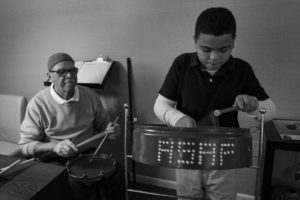
By mid-October, Asaf’s mother had convinced them to come visit Philly for a few days. Food had come by eventually; but the storm had presented a new set of challenges. Raúl hadn’t performed or played anywhere. He had not been able to meet with students. There was no money to get by. Raúl could also not get the necessary medical care for his cancer treatment. He needed an injection every three months to stay healthy, a procedure not easily accessible in Puerto Rico after Maria. Asaf’s musical debut in Plaza, a well-known local shopping mall in the metropolitan area, had been interrupted. He had also acquired a bad infection after drinking from a polluted water source.
Things in Puerto Rico were difficult and dangerous. It took four hours to get gasoline, cash, and other basic necessities because of marathon-like lines. The supermarkets, usually lined with rich tropical fruits and vegetables, were quickly emptied as soon as shipments arrived. Lurking assailants were breaking into any vulnerable homes that had been damaged by Maria. The restoration of electricity in a few months time was a governmental pipedream.
By the end of their stay, Asaf’s mother had convinced them to remain in the United States for a while. The pair has not left Philadelphia since. What was to become a short respite has become an indefinite return home postponed. Raúl and Asaf are now living as nomads; they have jumped around from temporary housing to temporary housing as they settle here.
Raúl and Asaf spent the days after the hurricane playing red and green steel drums they had built out of recycled trash cans. Their entire repertoire—from Christmas songs to Puerto Rican bombas—was performed. With no electricity, no phone, and no communication, no one else existed. It was just Raúl, Asaf and their music.
Until this week, they were comfortable and secure in a FEMA-sponsored hotel room near Benjamin Franklin Parkway. They have since received an eviction notice from the organization, along with many others staying in federally-funded shelters. They must leave by today and are sorting through different housing options.
But they have done what they can to make their shelter for the past two months a home. Raúl cooks for his son everyday. Asaf plays soccer down the hallway after school. Glass bowls full of beans are soaking by the stove top, ready to become habichuelas guisadas. There is also a painting of Saint Cecilia, the patron of music, by the vanity mirror. Next to the canvas, a small statue of the Archangel Michael, protector of the heavens, has found a new place. It used to hang from Raúl and Asaf’s front door in Puerto Rico. A delicate, white string held it in place before Maria. And when they came out after the hurricane, to understand the new landscape before them, the statue of Michael was still there.
![]()
Asaf is finishing the 4th grade in Philadelphia, and he has found community and comfort with other Hispanic students, as well as kids from all over the world. He enjoys the multiculturalism of his Philly school. Though he will be switching schools soon due to their uncertain address change, Raúl is confident he will be okay; he spends his afternoons playing his steel drum with his father. It is the only instrument they brought with them from Puerto Rico.
Raúl’s age and illness make it difficult for him to get a job. He has performed around the city and raised awareness of what’s happening back on the island at churches and hotels, but not landed a steady gig. And he has not been able to do what he loves most: teach music to others. Raúl misses fulfilling the vocation he was born with; he brought with him all of his teaching materials and resources, but he has not been able to share them with anyone yet. However, he has found an “excellent doctor” to take care of him who has continued his treatment plan for his cancer.
Raúl does not know if they will be going back to Puerto Rico any time soon. He feels stuck in a geographic and circumstantial limbo, somewhere between the Caribbean and the Mid-Atlantic. But he hopes they will be able to return soon. After all, and in his own words: “We were happy there.”
Header Photo: Puerto Rican hurricane refugee and musician Raúl Berríos, 63, cooks tostones for his 9-year-old son, Asaf, in a FEMA sponsored hotel room on the Benjamin Franklin Parkway in Center City, Philadelphia. Berríos, is staying in a federally-funded shelter and recently received an eviction notice and must find other living arrangements by February 14th. Photo by Cameron Hart Visuals


